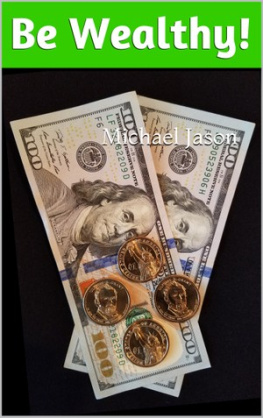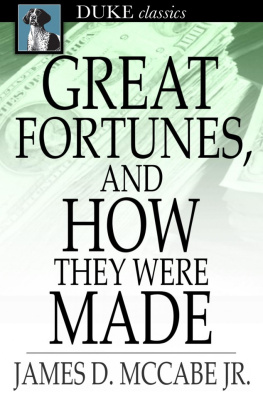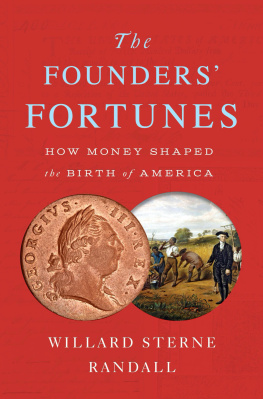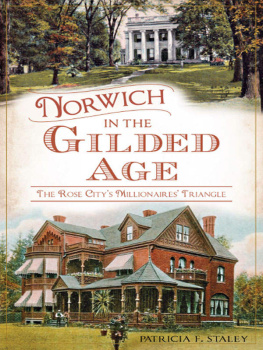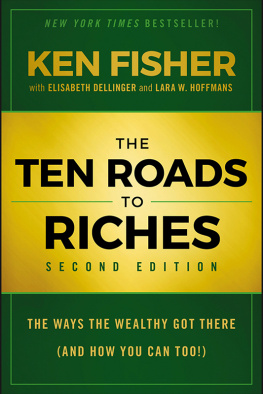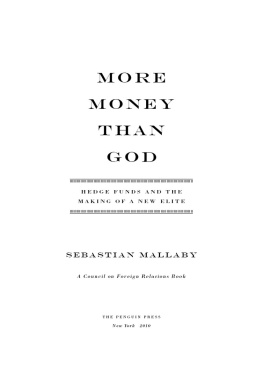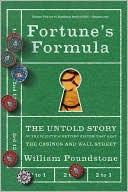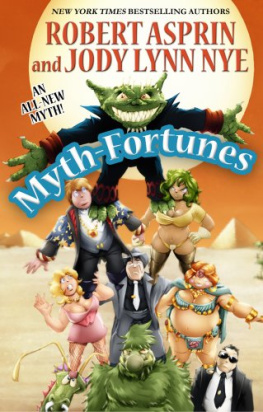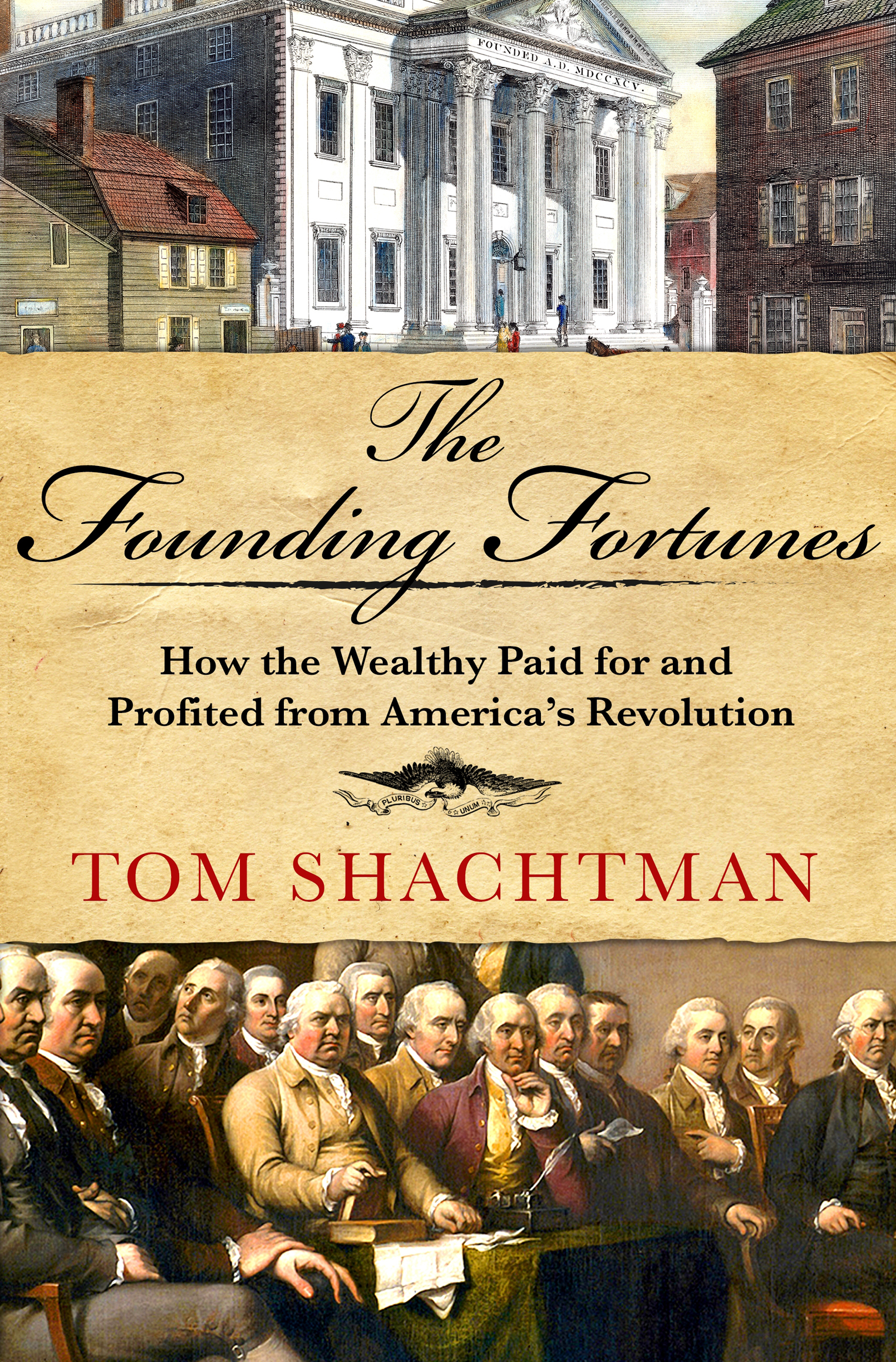The author and publisher have provided this ebook to you for your personal use only. You may not make this ebook publicly available in any way. Copyright infringement is against the law. If you believe the copy of this ebook you are reading infringes on the authors copyright, please notify the publisher at:
us.macmillanusa.com/piracy.
John Adams (17351826). Lawyer, farmer, delegate to Continental Congresses, emissary to France, minister to Great Britain, vice president, president.
John Jacob Astor (17631848). Merchant, fur trader, real estate investor.
William Bingham (17521804). Philadelphia merchant, agent in Martinique, delegate to Continental Congresses, speaker of the Pennsylvania Senate, senator.
Tench Coxe (17551824). Merchant, author of economic tracts, delegate to Continental Congress, assistant secretary of the treasury.
Silas Deane (17381789). Hartford merchant, trader, delegate to Continental Congress, agent and envoy in Paris.
Elias Hasket Derby (17391799). Salem merchant and trader.
John Dickinson (17321808). Lawyer, farmer, delegate to Continental Congresses, president of Delaware and of Pennsylvania, delegate to Constitutional Convention.
William Duer (17431799). Merchant, provisioner, speculator, member of Continental Congress, assistant to secretary of the treasury.
Benjamin Franklin (17051790). Printer, scientist, agent for colonies in London, delegate to Continental Congress, emissary to France, delegate to Constitutional Convention, president of Pennsylvania Supreme Executive Council.
Albert Gallatin (17611849). Surveyor, developer, manufacturer, senator, representative, secretary of the treasury, minister to France and Great Britain.
Stephen Girard (17501831). Philadelphia merchant, trader, banker.
William Gray (17501825). Salem merchant, Massachusetts state senator, lieutenant governor.
Alexander Hamilton (17551804). Lawyer, banker, member of Continental Congress, delegate to Constitutional Convention, secretary of the treasury.
John Hancock (17371793). Boston merchant, trader, president of the Continental Congress, governor.
Thomas Jefferson (17431826). Delegate to Continental Congresses, Virginia governor, ambassador to France, secretary of state, vice president, president.
Henry Laurens (17231792). Charleston merchant, trader, planter, president of Continental Congress, minister to the Netherlands.
Benjamin Lincoln (17331810). Farmer, member of Massachusetts Provincial Congress, general, lieutenant governor.
James Madison (17511836). Virginia planter, delegate to Continental Congress, delegate to Constitutional Convention, representative, secretary of state, president.
Thomas Mifflin (17441800). Merchant, trader, president of Continental Congress, quartermaster, president of Pennsylvania Supreme Executive Council, delegate to Constitutional Convention, governor.
Gouverneur Morris (17521816). Lawyer, delegate to Continental Congress, delegate to Constitutional Convention, minister to France, senator.
Robert Morris (17341806). Philadelphia merchant, trader, delegate to Continental Congress, superintendent of finance, delegate to Constitutional Convention, senator.
James Wilson (17421798). Philadelphia lawyer, delegate to Continental Congress, delegate to Constitutional Convention, associate justice of the Supreme Court.
Jeremiah Wadsworth (17431804). Hartford merchant, trader, banker, agriculturalist, commissary, representative.
George Washington (17321799). Planter, member of Virginia House of Burgesses, delegate to Continental Congress, commanding general, delegate to Constitutional Convention, president.
Thomas Willing (17311821). Merchant, trader, banker, mayor of Philadelphia, delegate to Continental Congress.
Oliver Wolcott, Jr. (17601833). Hartford lawyer, banker, comptroller and secretary of the treasury, governor.
At sunset on May 9, 1768, the merchant ship Liberty sailed into Boston Harbor after a voyage from Portugals Madeira Islands, with a cargo of the islands fortified wine that the ships owner, the thirty-one-year-old John Hancock, often drank: I like rich wine he had recently written to a friend. At the Hancock Wharf, the tidesman Thomas Kirk boarded the Liberty to ascertain the duty on the cargo. He was wary on several counts. Although among the wealthiest of Bostonians, Hancock was known for his radical sympathies, to the point that many other merchants considered him a traitor to his class. Also, as an experienced smuggler, he might dispute the relatively new import duty on Madeira not reshipped from Great Britainpreviously he and a gang of seamen had blocked Kirks fellow officers from access to the hold of his Lydia, suspected of containing dutiables, and when a lone officer sneaked aboard at night he was surprised below by men demanding to see his writ of assistance or search warrant. He had neither. Hancock had him seized, held over the side, and asked whether he really wanted to search the vessel. He said no, well aware of recent incidents in which customs officers were tarred and feathered, and Hancock advised that he was free to inspect but not to linger. He left the ship.
Regarding the Lydia, the colonys attorney general had ruled: Though Mr. Hancock may not have conducted himself so prudently or courteously as might be wished it is probable that his intention was to keep within the bounds of the law. On boarding the Liberty a month later, Kirk made sure to have proper papers. Hancock was not there, either attending to his duties for the town council or provincial congress, or at his palatial home atop Beacon Hill, or traveling in his gilded carriage. Aboard the Liberty Hancocks representative offered Kirk a bribe to report fewer casks of Madeira. When Kirk did not accept, he was locked in the steerage. During the night he heard a noise as of many people upon deck at Work hoisting out goods. Released, he was warned not to say a word, and he didnt: He reported the Liberty as carrying just twenty-five pipes (casks of 125 gallons each), a quarter of its capacity; Hancock paid the duty and that seemed the end of itbusiness as usual. Collusion was rife: In an article Stephen Hopkins, former governor of Rhode Island, accused Massachusetts officials of shutting their eyes or at least of opening them no further than their own private interest required.
A month later, as Hancocks Liberty was being readied for another voyage, the HMS Romney entered Boston Harbor, and everything changed. The fifty-gun warship had been sent to over-awe and terrify the inhabitants of this town into base compliance and unlimited submission, according to a Boston newspaper. Its presence emboldened Kirk to recant his twenty-five-pipes report and to charge that Hancock had evaded import taxes. This gave the port commissioner reason to have a broad arrow painted on the Libertys mast, a sign of imminent seizure. The Romneys marines approached in small boats and prepared to haul the Liberty away.
Hancock was not there, but three hundred to five hundred other men gathered at the pier to protest the seizure.
Revolutions that produce lasting change, rather than just disruptions, cannot succeed without the participation of both the rich and the poor. The British seizing of the



